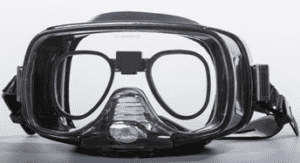*This post may contain affiliate links. As an Amazon Associate we earn from qualifying purchases.
How long do I need to wait before I can get back into the water after Lasik?
Lasik surgery is a type of refractive surgery that is used to correct vision in people who are nearsighted, farsighted, or have astigmatism. This surgery is performed by an ophthalmologist, and usually takes less than half an hour. After the surgery, patients are typically given a list of instructions to follow, which usually includes avoiding water for a period of time.
So, how long should you wait before going back into the water after Lasik surgery? And can you scuba dive after Lasik? The answer may vary depending on who you ask, but most ophthalmologists will say that it is best to wait at least a week before getting your face wet. This gives the incisions time to heal and helps to reduce the risk of infection. Swimming in a pool or the ocean is generally fine after this waiting period, but it is still important to avoid getting water in your eyes for the first few weeks after surgery.
If you have any questions or concerns about returning to activities after Lasik surgery, be sure to talk to your ophthalmologist. They will be able to give you specific instructions based on your individual case.
What are the potential risk factors associated with having Lasik surgery and scuba diving?
There are a few things you should know if you’re considering Lasik surgery and is currently an active scuba diver. Lasik, as we all know, is a popular type of operation and has a very high success rate. but like any surgery, it carries certain risks. And if you’re a scuba diver, there are some special considerations you need to take into account.
Lasik surgery involves correcting your vision by reshaping your cornea. This is done with a laser, and it’s a very precise surgery. In most cases, Lasik is successful, and patients end up with much better vision. However, there are some potential risks associated with Lasik, including:
- Infection: Any time you have surgery, there’s a risk of infection. This is typically a very small risk with Lasik, but it’s still something to be aware of.
- Flap complications: During Lasik surgery, a flap is created in the cornea. This flap is then lifted so the laser can reshape the cornea. Complications can occur if the flap is not created properly or if it doesn’t heal properly after the surgery.
- Dry eyes: Many people experience dry eyes after Lasik surgery. This is usually temporary and can be treated with artificial tears or other medications.
- Glare, halos, and starbursts: You may experience some side effects from the surgery, such as glare, halos, or starbursts. These are usually most noticeable at night and should improve over time.
- Under-correction or over-correction: In some cases, the surgery doesn’t correct your vision as much as you’d hoped. This can be disappointing, but it can usually be corrected with a second surgery. In rare cases, your vision may be over-corrected, and you may end up seeing worse than you did before the surgery.
Now, let’s talk about scuba diving. If you’re considering Lasik surgery, you need to be aware of the risks associated with diving. Lasik surgery can cause serious problems if you dive before your eyes have fully healed.
When you dive, you’re exposed to high levels of pressure. This pressure can cause the flap in your cornea to dislodge. If this happens, you could lose your vision completely. For this reason, it’s important to wait at least six weeks after Lasik surgery before diving.
In addition, you need to be careful about diving in water that’s too cold. Cold water can cause serious problems with your healing cornea. It’s best to wait at least three months after Lasik surgery before diving in water that’s below 70 degrees Fahrenheit.
So, if you’re considering Lasik surgery and you’re an active scuba diver, there are a few things you need to keep in mind. Lasik is a very successful surgery, but it does carry some risks. And if you’re a scuba diver, you need to take some special precautions.
Are there any diving benefits when I decide to have Lasik surgery?

As a diver, you know that good vision is essential. Being able to see clearly underwater is crucial for both safety and enjoyment. Lasik surgery can help you achieve the clear vision you need to dive with confidence.
There are a number of benefits that Lasik can offer divers. First, it can eliminate or reduce the need for corrective lenses. This means that you won’t have to worry about losing your contacts or glasses while diving.
In addition, Lasik can improve your depth perception. This can be helpful when you’re trying to gauge distances underwater. Finally, Lasik can help you see better in low-light conditions. This can be a real advantage when you’re diving in murky water.
Tips for a Successful Scuba Dive After Lasik
Many people worry that their vision will be affected underwater after a Lasik procedure, but there are a few things you can do to help ensure a successful dive.
Here are a few tips to help you have a successful and enjoyable experience scuba diving after Lasik:
- Get clearance from your eye doctor. Talk to them about your dive plans. They can advise you on any special precautions you should take.
- Use caution when diving in salt water. Salt water can be irritating to your eyes, so be sure to use eye drops and a mask with a good seal.
- Don’t touch your eyes. Avoid touching or rubbing your eyes underwater.
- Be aware of your surroundings. Be extra cautious when diving in unfamiliar waters or when visibility is poor.
- Take breaks as needed. If your eyes start to feel irritated, take a break from diving and rest your eyes.
- Be extra careful when diving. Take your time and move slowly to avoid any sudden movements that could cause your eyes to strain.
- Have patience.! It may take a few dives to get used to your new vision, but eventually you’ll be back to enjoying the underwater world like before.


